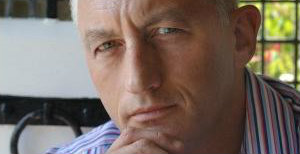We need to stand up to Government hyperbole

There was a time when apothecaries regularly reached for the jar of leeches. For ailments ranging from headaches to constipation, the hypothesis conjectured a concentration of humours that required release from our Hirudinean friends. Then along came the enlightenment, and shares in leech farms plummeted. The evidence demonstrated leeches to be ineffective. Even harmful. So we stopped using them. The scientific process is a simple one: generate a hypothesis that is testable, test it, and if the data is contradictory then it is back to the drawing board.
The medical profession stands united against an increasingly discredited ideology
Politics is different. Politics starts not with a hypothesis, but with an ideology. And ideologies are dangerous. Ideologies brook no resistance. If the data is contradictory then we change the data. And if we cannot change it then we draw on it selectively which is even worse, because selectively quoting fragments of data permits genuine self-delusion. When we see only the evidence that confirms our own world view it is never challenged.
That is what happened last week as the Government flailed helplessly amid a crisis in the NHS that was entirely of its own making. Medical inflation runs at 4-5% per year while NHS funding increases, under austerity, have run at under 1% a year since 2010. After six years that adds up to a roughly 25% shortfall. That is evidence and it is simple. But prevailing government ideology demands that austerity is good and that the workers of the NHS just need to buck up their ideas. Then came the report from the National Audit Office (NAO) with their 13 point summary.
Twelve points were rapidly ignored as the ideologues and much of the media focussed on a single point about core hours. Many of the NAO warnings about the lack of safe data, questionable resources, and the dangers of extended GP working were set aside. Also ignored was the context in which many practices close their doors, usually at lunchtime, while their doctors are out doing visits for the housebound who would otherwise be in hospital. Preventing that sensible allocation of resources would actually increase the pressure on hospitals, but it seems that the facts are never allowed to get in the way of a good political crisis.
In a sorry echo of the attacks of yesteryear the hastily reached conclusion was that GPs are lazy and failing the British public. The remedy was for an assertive Government to highlight their fecklessness and threaten them with sanctions, with the new policy being announced to the press at 10pm on Friday night. A policy of forced extended hours that the NAO report specifically cautions against.
Dr Chaand Nagpaul, chair of GPC, and Dr Helen Stokes-Lampard, chair of our royal college, spent the weekend putting the media straight on many of these points and demonstrated the kind of unity of purpose that is the hallmark of general practice. They highlighted that over 80% of GPs report their excessive workload to be a block to safe care. They told of the third of practices nationally with permanent GP vacancies. And they told of the third of GPs who intend to leave the profession. And so the tide turned. The battle between evidence and prejudice was finally won when Dr Sarah Wollaston, Conservative MP and chair of the Commons health slect committee, accused Theresa May, her own party leader, of ‘scapegoating’ GPs.
Huge damage has been done by this episode of unhelpful spin. A sober reflection on funding and access issues in the NHS has been hijacked by a government in paralysis, a profession on the edge of collapse has been unfairly targeted, and worst of all the debate about proper resources has vanished. Dr Mark Porter, chair of the BMA, has written to Theresa May to demand an urgent meeting on the NHS crisis. In a clear demand for her to retract her allegations he tells her that ‘The Government’s attempt to scapegoat GPs for a system wide crisis resulting from years of underfunding must be addressed.’
The medical profession stands united against an increasingly discredited ideology. We will not be drawn into hyperbole and conflict on the ground of the Government’s choosing. And we will not allow prejudice to trump evidence. We embraced science two centuries ago with the resultant doubling of life expectancy. The Government are still busy farming leeches, with no sign of enlightenment. The only question is whether the body of the NHS will survive another blood-letting.
Dr Mark Sanford-Wood is a GP in Devon and a GPC executive member









